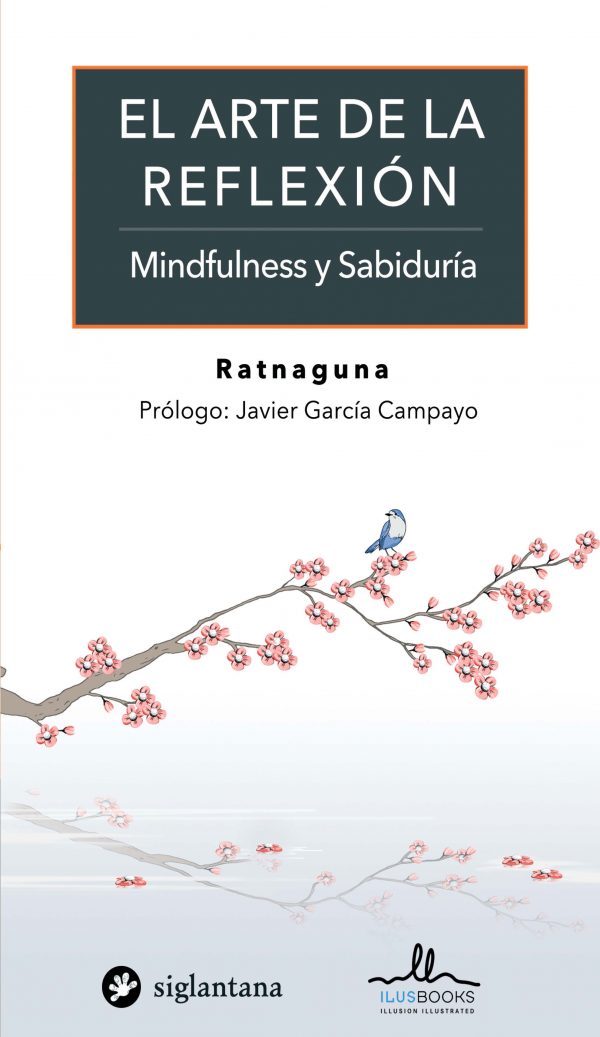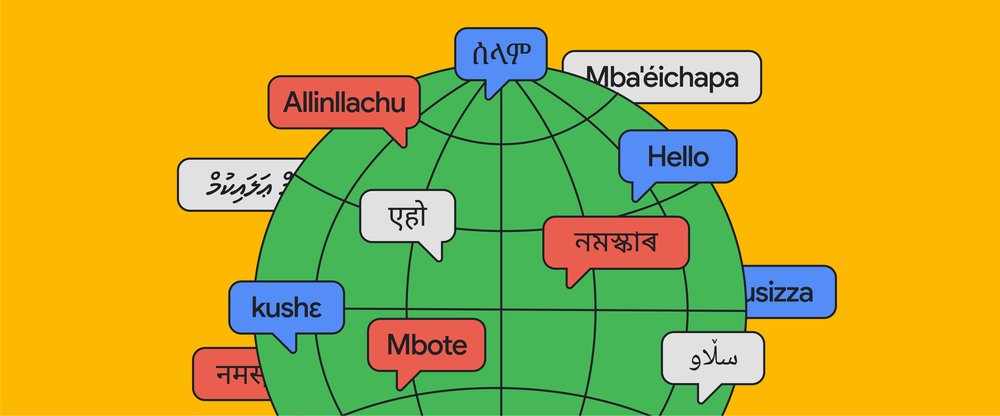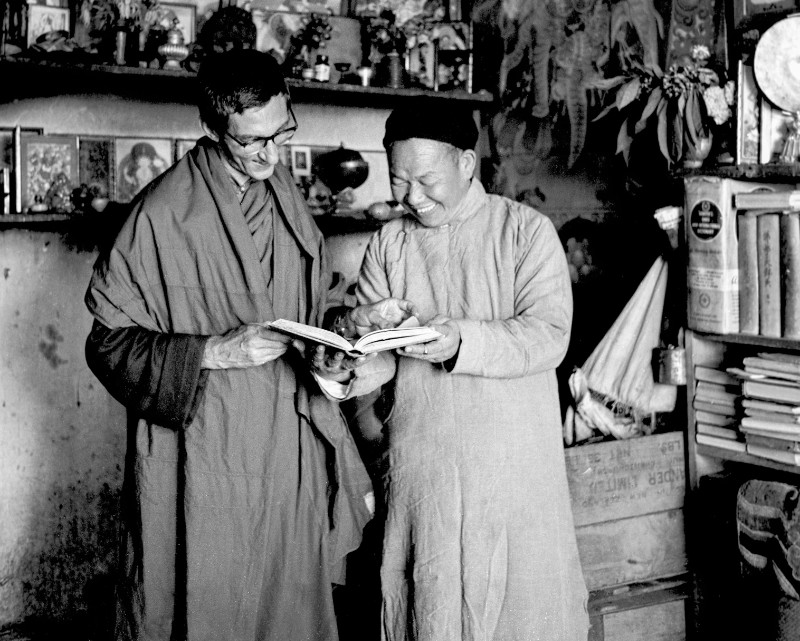Translation work
The Dharma in your own languageThe importance of translation
What did the Buddha have to say about translating the Dharma into other languages? And what was Bhante Sangharakshita’s view? In his book What is the Dharma? Bhante says:
”For the same reason he insisted that his teaching should be made available to people in their own language. One day two disciples of his who were of Brahmin birth and ‘of fine cultivated language and fine eloquent speech’ came to the Buddha and requested permission to put his words into Vedic, the exclusively brahmanical language out of which Sanskrit later developed. But the Buddha refused to allow this. People were to learn the Dharma in their own language or dialect. This principle has been followed throughout Buddhist history. There is no one sacred language. When the Buddha’s teaching went to Tibet, the scriptures were all translated into Tibetan. When it went to China, they were translated into Chinese. In fact, wherever Buddhism went it gave a stimulus to the local language and literature.
The basic idea is that the Dharma is to be shared with everybody in a way that they can understand.
Some religions have a priestly class with a sacred language and in this way knowledge of the scriptures is confined to a small circle of people, but the Buddha insisted that his teaching should be spread as widely as possible, in as many ways as possible. This is what is meant by that teaching being svākkhāto – ‘well-communicated’.”
So, both the Buddha and Bhante Sangharakshita are very clear about the need and vital importance of translations. But why?
For those who speak English as their first language and always have heard and read the Dharma in that way, it may not be so obvious. It’s ever so easy to take for granted what we have and always have had. But for a German, a Spanish or an Estonian person – or anybody else whose first language is not English – it makes a world of difference to have the Dharma in their mother tongue.
I have heard many people say that when they can hear, read and study the Dharma in their own language it touches their hearts more and goes deeper in their being. The teaching produces deeper resonances within them that a second or third language often can’t do. There is a growing number of testimonies to this effect.
As well the videos shown here, you can find other testimonials on FutureDharma’s site (who help fund translations) or see Saddhajala talking about how a Polish translation changed her life.
Translations and where to find them
The obvious place to buy translated books is of course at the local Triratna Buddhist Centre of each country, or online through their website. The books and texts are often available online, sometimes in a number of formats, and also in regular online bookstores. (see links below)
In many countries sangha members have translated shorter Dharma texts, pujas, poems etc. and have published or shared them online. Each Country or language has their own system of sharing their books and other texts.
Some useful links for Buddhist Centres:

International Triratna Translations Board (ITTB)
Within Triratna translation has been going on for a very long time. Translation, however, hasn’t been a priority for much of this time, at least generally speaking. This is something that a small band of people are doing their best to rectify. Read about the ITTB – the International Triratna Translations Board.

What is the ITTB?
The ITTB is a group of people working to raise funds for translations around the globe (until recently they focused their work within Europe).
1. First of all we apply for money from FutureDharma and the ECA;
2. We invite translation coordinators to apply for funds for actual translations, and later
3. We process the applications and decide on who we can give grants to.
4. Our work also involves ensuring that high standards are achieved and maintained;
5. that the translation projects are seen through to publication, distribution;
6. and that they are being used at Buddhist Centres and courses etc.
We also encourage the people receiving grants to ask for support and help in all manner of ways from their local sanghas.
In order to achieve all of this we encourage and work with local Translation Coordinators in every country where there are active translation projects.
Languages that have received grants so far are: Albanian, Estonian, Finnish, French, German, Hebrew, Hungarian, Italian, Dutch, Norwegian, Polish, Portuguese (Brazil), Russian, Spanish, Swedish, Turkish and Welsh.
Between 2011 and 2022 we have administered a total sum of £99,243 (est. €114,630) in grants.
The Vision of ITTB
INTERNATIONAL TRIRATNA TRANSLATIONS BOARD VISION
for the benefit and happiness of all
The vision at the heart of the Triratna Buddhist Order and movement is to spread the Dharma as taught by Sangharakshita to all parts of the world. The International Triratna Translations Board exists:
- to contribute to this work by promoting and facilitating the translation and publication of texts (whether in book form, for websites or via other media) into as
many languages as possible - to promote translation to the highest possible standard
- to be the focus for communication concerning translations in Triratna
With our Triratna Partners
The Translations Board aims to work in communication and in harmony with other
Triratna bodies. To all these bodies we report regularly on our activities:
- The European Chairs Assembly (ECA), from which we receive funding.
- FutureDharma Fund (FDF), from which we receive funding.
- Windhorse Publications, who hold the translation rights for works by Sangharakshita and many other Triratna authors.
- Sangharakshita’s Literary Executors, who are charged with responsibility for faithfulness and quality of translations of his works.
Sangharakshita’s requests
The TTB aims to work with and on behalf of Sangharakshita’s Literary Executors, in
particular to fulfil his requests:
- “To ensure that translations of my writings into other languages are faithful to the original text.”
- “To maintain the integrity of the text as well as the personality of the writer as expressed in the text.”
Four main benefits of translation:
- Books in local languages will assist in the transmission of the Buddha’s teaching as presented by Sangharakshita in countries where Triratna is already established, as well as helping its establishment in countries where Triratna is not
yet present. (Having access to the teachings in one’s own language can be crucial in making a living connection with the Dharma.) - Enabling members of the Sangha all over the world to have access to accurate translations of the same set of teachings will be a major force for harmony, unity, and coherence in the Order and movement.
- Books and websites in different languages that are publicly available will help make Sangharakshita’s approach to the Dharma known beyond Triratna; and may help publicise local Dharma activities.
- Translation work can be an important project around which a local sangha can gather; and may even become a Right Livelihood project in some places.
Medium Term Aims of the Triratna Translations Board
- To encourage the translation and publication of texts as books and through other media in each country where Triratna is established.
- To draw up a list of recommended core books and texts that are (a) appropriate to local situations and (b) sensitive to developments in the Order and movement that result in new texts.
- To find and then liaise with Translations Coordinators and Project Managers for each language, encouraging them to formulate their own vision and priorities, drawing guidance from our vision statement and list of recommended books.
- To encourage translations into the languages of countries where there is not yet any Triratna presence.
Role and Function of the International Triratna Translations Board
- To uphold and communicate the vision of the Board to the wider Triratna community, especially through liaising with other Triratna bodies (as listed in point 11).
- To develop and maintain clear objectives; and to work out strategies for their implementation.
- To keep a record of Sangharakshita’s translated books, texts and other media, as well as those of other Triratna authors
- To encourage and support Translation Coordinators and Project Managers for each language. (Members of the Board will be the contact person for local coordinators.)
- To encourage and facilitate the forming of translation kulas of Order members and Mitras.
- To apply for funding for translation from Triratna grant-giving bodies, such as FutureDharma Fund and the European Chairs Assembly. To invite, receive and assess applications for
funding and facilitate its distribution. - To ensure that the conditions of the grants are adhered to: requesting, assessing and responding to progress reports from those who have received grants.
- To encourage and ensure, in collaboration with Windhorse Publications and with local
Translations Coordinators, and with Sangharakshita’s Literary Executors in the case of translations of his works, that the books are translated and published to as high a standard
as possible. (The Board appreciates that it may not be possible, especially in new Triratna situations, for translations to be of the highest standard. In such cases, the Board asks that translations are marked ‘draft translation’ for in-house use and are not made publicly
available). - To encourage Triratna in each country to make as full use as possible of all forms of publication, including printed books, print-on-demand, e-books, pdf’s, websites, audio books etc.
- To give support and facilitate the sharing of good practice, e.g. by organising and promoting forums for sharing the knowledge and expertise needed to translate, publish and distribute texts as books and via online and other media.
- To coordinate with other bodies in Triratna whose work and concerns overlap with the Board’s. At present this includes: Sangharakshita’s Literary Executors and the Urgyen Sangharakshita Trust, Windhorse Publications, the Complete Works team, the Triratna Translations Board/India, the European Chairs Assembly, FutureDharma Fund, the Buddhist Centre Online and the International Council.
(Minor corrections July 2022, Kalyanaprabha and Viryabodhi.)
History of ITTB
The ITTB had its modest beginnings in 2011 and has evolved, and changed name twice, since then. During a meeting of the European Chairs Assembly (ECA chairs from all European Triratna Centres who meet twice a year) it was decided that part of its Development Fund would go to translation projects in Mainland Europe. The idea was that local sanghas would be able to apply for grants to translate books by Bhante and other writers within Triratna. Behind this initiative were some chairs of Continental European Centres, such as Vassika and Viryabodhi, and later Amalamati, Nityabandhu, …
Right from early on we had very generous administrative help from someone on the Development Team (such as Nandavajra, Mokshini and now Gunabhadri).
Grants for translation work (and how to apply)
In December every year the ITTB sends out invitations to apply for translation grants. The projects that we give grants to are either:
- new direct translations of Bhante Sangharakshita’s books
- editing and improvement of old translations
- translations of other prominent Triratna writers/teachers
- Puja books
- Mitra study material
People then chose to publish either larger printed editions, print-on-demand editions, e-book editions or online on websites, or any combination of those.
If someone is interested in translation we advise you to contact the local Translation coordinator to get more information. The local chair or mitra convenor should know who they are (or write to:
int.triratna.translations.board@gmail.com)
The procedure is that one translates a shorter piece to assess one’s translation capacity and Dharma knowledge, and then one gets feedback on this. People translating within Triratna are usually not professional translators, but feel passionately about the Dharma as taught by Bhante Sangharakshita and wish to have the Dharma in their mother tongue. Over time they develop their skill and capacities, through helpful support and feedback in the local translation groups.
What we do
A short video interview/conversation between Viryabodhi and Kalyanaprabha
Contact one of the ITTB


